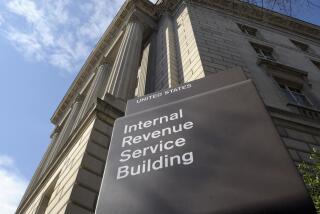RTC Cushion of $8 Billion Is Disclosed
- Share via
WASHINGTON — The Resolution Trust Corp. has access to at least $8 billion to handle the savings and loan crisis, even though a deadlocked Congress has halted new funding for the thrift cleanup agency, the government said Thursday.
This substantial cushion--made up of $3 billion in RTC reserves and a $5-billion emergency line of credit at the Treasury--is far larger than previously reported.
The disclosure was made by RTC Chairman Albert V. Casey in a letter to House Banking Committee Chairman Henry B. Gonzalez, a copy of which was made available to Reuters on Thursday.
The existence of the extra money assures depositors that the agency can honor its commitment to repay them if a thrift fails.
But the news drew charges from some lawmakers Thursday that the RTC had in effect deceived Congress into believing that it was flat broke.
“They are obviously misleading the public,” said Rep. Bruce Vento, (D-Minn.), a House Banking Committee member who headed an RTC task force. “Quit jerking us around is the message here. We are joint parties in this thing.”
Disclosure of the reserves will make it tougher to get reluctant House members to approve more funding for the RTC, Vento and other lawmakers and thrift lobbyists said.
Last fall, the RTC was granted $25 billion. That spending authority expired April 1. The RTC asked for an extension of the spending authority, but Congress refused.
The House is at a stalemate over how much more money, in an election year, to give a highly unpopular agency that is beleaguered by reports of bungled management and wasteful spending.
The Bush Administration has said RTC will need up to $160 billion to finish closing down and selling off insolvent thrifts. It has already spent $88 billion.
In his letter to Gonzalez on Monday, Casey said the agency has a $3-billion reserve to meet vital funding needs--one-third more than the New York Times reported a few days earlier.
Prudent management required that the money be set aside to cover emergency thrift closings, higher-than-expected losses when RTC assets are valued each quarter and to meet contract obligations for the sale of Investors Savings of Richmond, Va., Casey said.
More to Read
Sign up for Essential California
The most important California stories and recommendations in your inbox every morning.
You may occasionally receive promotional content from the Los Angeles Times.











